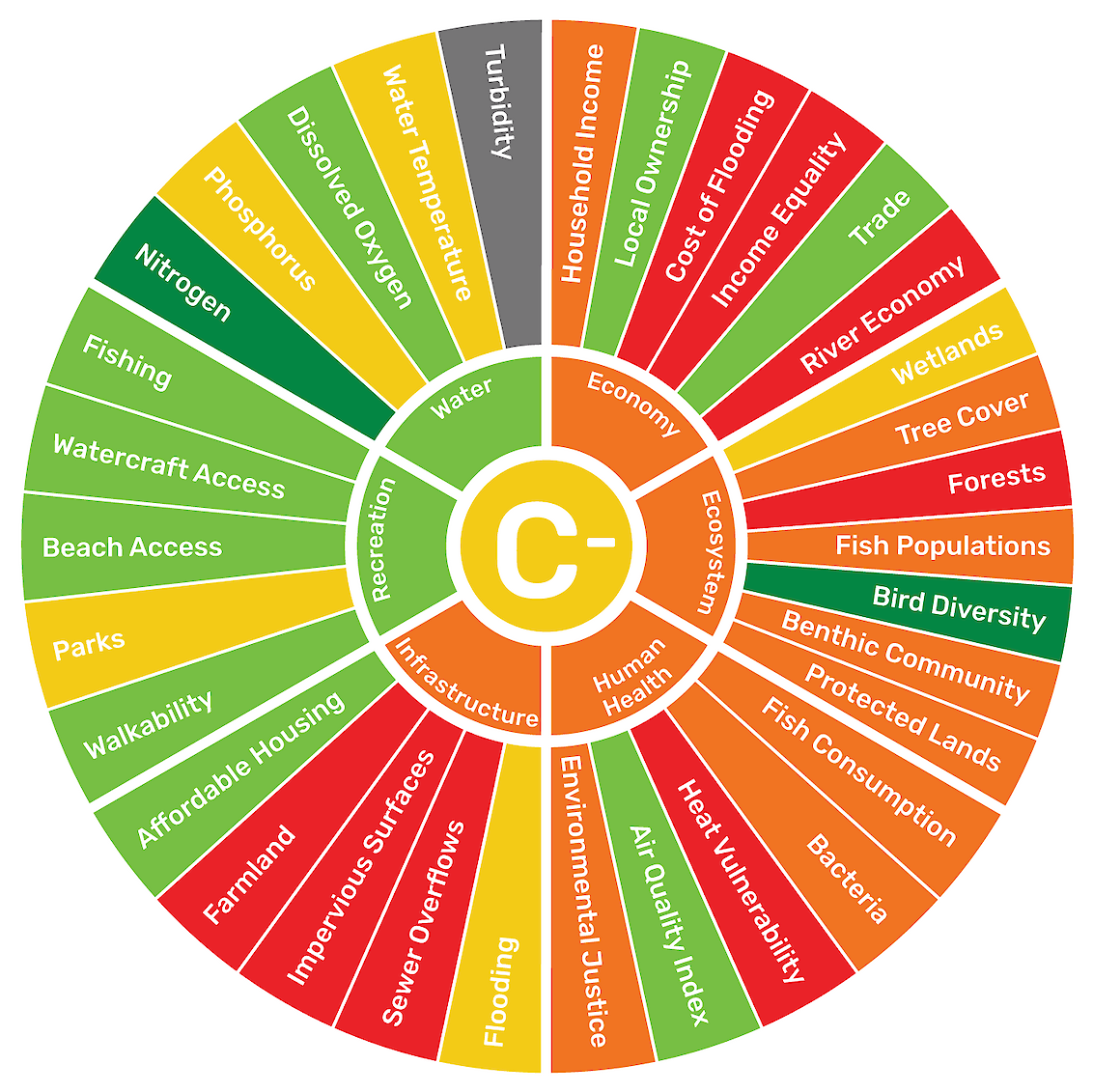The Overall Health Index is the average of the six category scores: Economy, Ecosystem, Human Health, Infrastructure, Recreation, and Water. Status of indicators within these categories was evaluated by comparing data to scientifically-derived thresholds or goals.

The Detroit River and its watershed are in Moderate Condition
The Detroit River and its watershed are in moderate condition (44%, C-). Category scores ranged from poor (Infrastructure, 22%) to good (Water, 74%). The highest-scoring Water indicators were Nitrogen (99%, A+) and Dissolved Oxygen (84%, A-), indicating that excess nutrients are low enough to encourage habitat restoration. In the Ecosystem category (37%, D+), indicator scores ranged from very poor (Forests, 0%) to very good (Bird Diversity, 92%). Wetlands received a moderate score (49%, C).
Human Health was in poor condition (36%, D+). The lowest-scoring indicator in this category was Heat Vulnerability (18%, F), and the highest was Air Quality (76%, B+). Infrastructure was in poor condition (22%, D-). Flooding received a moderate score (45%, C), while Affordable Housing received a good score (60%, B-).
Recreation was in good condition (66%, B). The lowest-scoring indicator was Parks (48%, C), while the highest-scoring indicator is Watercraft Access (79%, B+). Economy indicators in this region were poor (29%, D), with scores ranging from very poor (Cost of Flooding, 0%) to good (Local Ownership, 70%), demonstrating that residents in the watershed need more equitable access to economic opportunities. This would better prepare communities to respond to natural disasters like flooding.
